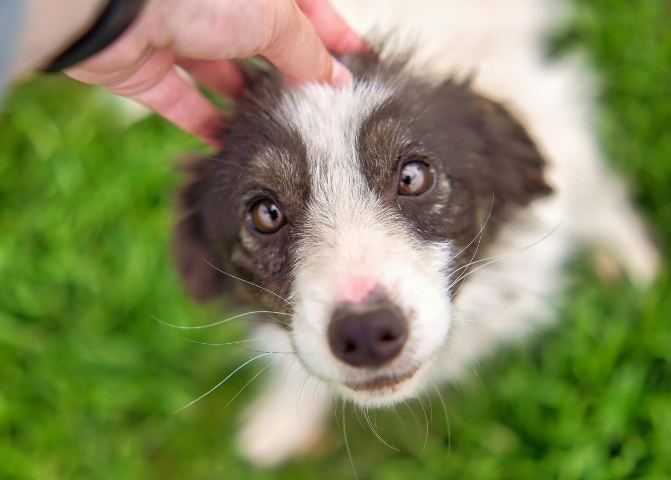
The raw food diet, also known as the BARF (Biologically Appropriate Raw Food) diet may be something you already talked about with other pet owners. As you may know, the BARF diet is a feeding approach that involves feeding dogs uncooked muscle meats, bones, and organ meat, as well as fruits and vegetables. There are both pros and cons to this diet, and there are some misconceptions that we will cover below, please keep reading.
Misconceptions About BARF
All raw foods are good for dogs.
Not all raw foods are suitable for dogs, and some can be harmful. For example, feeding dogs raw pork or raw fish can lead to health problems due to parasites and other harmful bacteria. It is essential to carefully select and prepare the right types of raw foods for dogs.
If you are looking to make something special for your dog, please check our article “Homemade Dog Treats - Simple and Easy”.
Raw food diets are always nutritionally balanced.
Raw food diets can be challenging to balance, and some owners may not provide the right amounts of nutrients, vitamins, and minerals. This can lead to nutritional deficiencies and health issues. It is crucial to consult with a veterinarian or a pet nutritionist to ensure that the dog's diet is appropriately balanced.
The AVMA (American Veterinary Medical Association) discourages pet owners from feeding cats and dogs any animal-source protein that has not been screened for pathogens as it can lead to severe disease. Not only meat but also milk and eggs should not be given to your pet unless they have been heat-treated properly.
BARF diet can cure all health problems.
While the BARF diet may offer some health benefits, it cannot cure all health problems in dogs. Some health conditions require medical treatment and cannot be solved solely through diet changes.
The scientific research of P. Kölle and M. Schmidt published in 2015 discusses the impact of the BARF diet. Their study shows that dogs on the BARF diet suffer from over-supplementation and deficiencies of nutrients like calcium, zinc, iodine, copper, phosphorus, and vitamins like A and D.
All dogs can thrive on a BARF diet.
Some dogs may not do well on a BARF diet due to various health conditions or individual nutritional needs. As mentioned above, the diet exposes dogs to nutritional deficiencies. It is essential to consider the dog's age, breed, health status, and other factors before switching to a raw food diet.
If you are worried that the store-bought food is making your dog fat please check our articles “Is My Dog Overweight?” and “How To Help Our Dog Lose Weight?”.
BARF diet is a complete replacement for commercial dog food.
While the BARF diet may provide some benefits, it does not appear to be a complete replacement for commercial dog food. Commercial dog food has been formulated to meet the nutritional needs of dogs and is often easier to store and prepare. It is important to consider the dog's individual nutritional needs and discuss feeding options with a veterinarian.
If your puppy is not fond of dry and wet food that you buy for them, please check our article “Puppy Won't Eat: Causes, Concerns and Solutions” for helpful tips.
Food is crucial for our survival and good health so preparing a balanced diet can be difficult at home. While we can decide what we will eat throughout our day our pets do not have the same leeway. We encourage pet owners to think carefully about what they are feeding their invaluable furry companions. Feeding your pet berries, peas, carrots, meats (boiled without seasoning), spinach, apples, and pumpkin can do wonders for their coats, breath, gut-microbiome, energy levels, and eyesight. The AVMA warns that homemade diets do not undergo rigorous testing as applied to commercial diets of dry and wet food. If you wish to feed your pet a balanced diet with the proper nutritional value you should consult your veterinarian. If you are looking to switch your dog to a BARF diet please consider the pros and cons listed below.
Pros of BARF Diet
Improved dental health.
Chewing on raw bones can help keep dogs' teeth clean and healthy. About the same result can be achieved by giving your dog dental sticks. Please, check our article “The Importance of Pet Dental Health” for tips on how to maintain your dog’s good dental health.
Shinier coat and healthier skin.
The high levels of protein and essential fatty acids found in raw food can help improve the condition of a dog's skin and coat. A study from 2022 supports the claim that fresh food improves skin and coat health in pet dogs.
Higher energy levels.
Some dog owners report that their dogs have more energy and are more active on a raw food diet.
Fewer digestive problems.
Some dogs with digestive issues may see an improvement in their symptoms when switched to a raw food diet. Please, be warned that dogs with liver problems, cancer, or other immunosuppressive illnesses should not be switched to raw food diet.
Reduced risk of certain diseases.
Some raw food advocates believe that a raw food diet can help reduce the risk of certain diseases, such as cancer. However, we are not aware of any scientific research that supports this claim and we encourage you to talk to your veterinarian before you switch your dog to a raw food diet.
Cons of BARF Diet
Risk of bacterial contamination.
Raw meat can carry harmful bacteria such as Salmonella and E. coli, which can make dogs and their owners sick. You may want to check the study called “The risk of salmonellae shedding by dogs fed Salmonella-contaminated commercial raw food diets” published in 2007.
Nutritional imbalances.
Raw food diets can be difficult to balance, and if not done correctly, can lead to nutrient deficiencies or imbalances that can harm a dog's health.
Choking hazard.
Bones and other hard items in a raw food diet can pose a choking hazard or cause gastrointestinal obstruction. However, bone meals can help your pet dog absorb other nutrients and aid digestion. It also contributes to strong bones which are appreciated for growing puppies. Don't buy a bone meal from a gardening store as it is used as fertilizer and is not safe for consumption.
Increased cost and time.
Raw food diets can be expensive and require more time and effort to prepare and store properly. Raw food may require more space and special containers to store safely. Also, raw food expires rather quickly.
Not suitable for all dogs.
Some dogs may have health conditions that make a raw food diet unsuitable for them, and it is important to consult with a veterinarian before switching to this diet.
Conclusion
Overall, while some dogs may benefit from a raw food diet, it is important to consider the potential risks and consult with a veterinarian before making the switch. It is also important to ensure that the diet is properly balanced and prepared to avoid any health issues.
Raw food like apples, pumpkin (only the soft part without the seeds), carrots, celery, broccoli, blueberries, bone meal, lettuce, and zucchini can be great to change up your dog’s diet and make it more appealing to your pet. However, you must take into consideration your pet’s health profile and carefully make a balanced diet for your paw partner.











